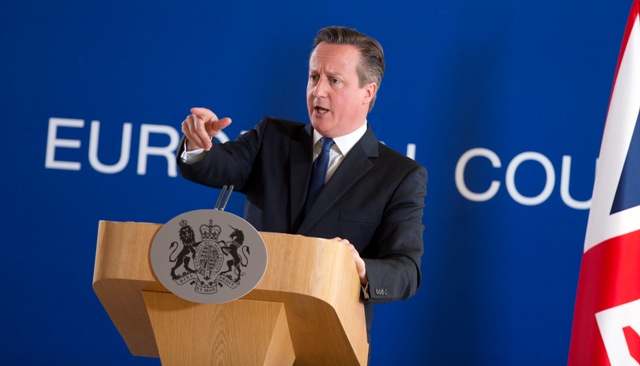The British prime minister announced a program to combat the rising Islamic extremism and anti-Semitism in his country, describing it as the “struggle of our generation.” Is he too late?
British Prime Minister David Cameron is working to dissuade young Muslims from joining the Islamic State (ISIS) terror group and to fight anti-Semitism in his country. He announced a five-year program on Monday to combat the phenomenon.
The plan is designed to put those who incite young people “out of action” together with suggestions to allow parents to cancel their children’s passports to prevent them from traveling abroad to join a radical group.
Cameron also announced a study designed to find ways to increase opportunities for young people from ethnic minorities to integrate into British society. He said a strategy would be published later in the year as part of the five-year-plan to wage what he defined as the “struggle of our generation.”
The measures are meant to crush the infrastructure that has made it possible for as many as 700 young Britons to join Muslim terrorists abroad, he said.
In a wide-ranging speech that targeted the ideology of extremism, Cameron chose a school in Birmingham, a center of the Muslim community in Britain, from which to argue that it was time to counter the narrative that has attracted so many young people to ISIS.
“You don’t have to support violence to subscribe to certain intolerant ideas which create a climate in which extremists can flourish,” Cameron stated.
One of those intolerant ideas, he said, is “based on conspiracy that Jews exercise malevolent power or that Western powers, in concert with Israel, are deliberately humiliating Muslims, because they aim to destroy Islam,” he added.
Cameron added, “If you say violence in London isn’t justified, but suicide bombs in Israel are – then you are part of the problem.”
WJC Urges More Leaders to Follow Cameron’s Lead
World Jewish Congress (WJC) President Ronald Lauder hailed Cameron’s program, congratulating him for “his strong stand against anti-Semitism and Muslim fanaticism. The resurgence of anti-Semitism and the spread of Islamic extremism across Europe is particularly troubling, and Mr. Cameron’s plan takes a vital step toward combating these destructive forces.”

WJC President Ron Lauder. (AP/MTI, Zoltan Balogh)
Lauder urged other European leaders to follow Cameron’s lead. “Once again, we are seeing the rebirth of classic anti-Semitic conspiracy mongering targeting Jews across Europe – and it is vital that Europe act now before the situation deteriorates.”
In an interview with the Atlantic in April, the British premier lamented the anti-Semitic and anti-Israel climate in his country, saying, “If you say violence in London isn’t justified, but suicide bombs in Israel are – then you are part of the problem.”
Cameron expressed fears about the dwindling Jewish community in England in wake of the mounting anti-Semitism in the UK. “The Jewish community in Britain makes an incredibly important contribution to our country. It is so well-integrated into every part of life,” he said.
“What is frightening at the moment, because of the rise of Islamist extremism, is that you see a new threat – a new anti-Semitism – and not the traditional anti-Semitism,” he continued. “Look, there’s always been some difficulties between religions in European history. But this is a new scale of threat against Jewish communities.”
A report by the British All-Party Parliamentary Inquiry into Antisemitism published in February confirmed a rise in anti-Semitic incidents in the UK.
According to numbers compiled by the Community Security Trust and presented in the report, the number of anti-Semitic incidents doubled in 2014 to reach 1,168.
Cameron told the Atlantic he would be “heartbroken” if his country’s Jews ever felt compelled to leave home. However, a survey conducted in January among the Jews in the UK showed that a quarter of respondents had considered emigration in the past two years and that over half believe that the Jews have no future in Europe.
By: AP and United with Israel Staff
